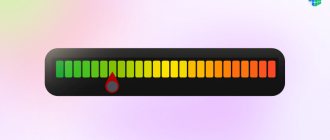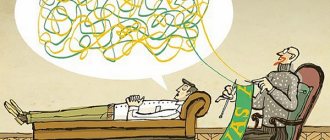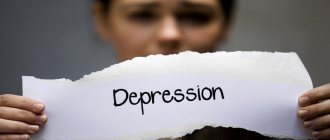Depression today, how to avoid it
Depression, ICD-10 code F32 – persistent decrease in mood for at least 2 weeks. However, it is always necessary to take into account the presence of existing concomitant diseases of a person, the medications he is taking, and the individual parameters of the formation of the body. Therefore, this period is always conditional. The main criterion of the disease is a decrease in quality of life. Influence on the external and internal life of the patient. As long as the body and psyche cope with the condition on their own, the help of specialists is not needed.
Treatment of depression - modern methods of restorative medicine 8.
How does depression manifest itself?
Depression often goes hand in hand with anxiety, sleep disturbances and general weakness. It occurs in response to unfavorable life circumstances or manifests itself as a result of a violation of brain biochemistry. There are also certain forms of depression that can be difficult to recognize. For example, somatization or postpartum depression, they are disguised as other diseases. These features require careful medical diagnosis and a completely different approach to treatment.
Depression is always associated with loss of energy. Be it the body’s struggle with a serious illness, a severe shock, or long-term difficult life circumstances from which a person cannot get out on his own.
In today's world, only a few manage to avoid depression. Depression affects everyone to one degree or another. But does everyone always need treatment?
How common is depression?
Doctors of various specialties often encounter depressive symptoms in their clients. Human emotions are a very mobile area of the psyche. But at times a person seems to be frozen on one emotional tone and is unable to return to his previous level.
Any statistics on depression will not reflect its true prevalence, since any disease, one way or another, upsets us and spoils our mood. This means that neurotic depressive symptoms will be added to the main disease. The pain will become more painful, the pressure will jump more strongly, and the heart will beat faster than this is reflected by objective changes in the organs. All this brings confusion to the therapeutic diagnosis of diseases. Doctors, and even patients themselves, are surprised that the prescribed treatment does not help as much as it should. And this will cause even more anxiety for the sick person.
At the same time, competent psychological assistance can almost completely relieve pain even in patients with advanced cancer or lower blood pressure without resorting to chemicals. All this indicates the significant influence of the subjective factor of perception of the symptoms of the disease and reaction to the surrounding reality.
Myth #7: “Are you depressed? Go work!”
With exactly the same success, one can advise a person with diabetes to go unload a wagon of bricks.
Is so-called “occupational therapy” necessary at all? Yes, it is needed by workers in hospitals, boarding schools and rehabilitation centers who force people with depression or alcoholism to dig up beds, clean wards or help prepare food.
At the same time, patients often also pay money for this, and considerable money at that. This takes the workload off the staff, which I think is well settled.
In my opinion, occupational therapy cannot help people suffering from depression or alcoholism. Among my patients with depression or alcohol addiction, many are real workaholics.
There is also such a problem as doctors being predisposed to depression. It is explained by the fact that people in this profession work a lot and hard, they have a high level of responsibility and stress, and they experience a lack of approval from others. Any mistake will result in a scolding from the chief physician, and in a difficult situation he may not support his subordinate. And if a doctor works at one and a half or two rates, which often happens, he cannot be called a slacker. He doesn't need occupational therapy; he works too much without it. One of the recent American scientific papers reports the results of a survey of young medical trainees for the period from 1963 to 2015. And every third young doctor who is still learning his profession shows signs of depression.
Types of depression
First, you need to figure out whether depressive symptoms have reached the level of a disease or whether this is a manifestation of a secondary depressive syndrome within the framework of the underlying condition.
Depressive syndrome has less pronounced manifestations, the cause of these disorders is clearly visible, the manifestation of symptoms is not stable: short “light” and “dark” periods replace each other.
When depression itself is felt by a person as a painful state of loss of strength, lack of interest in life and has a persistent decrease in mood.
Severity of depression
It is incorrect to distinguish stages in depressive disorders, since the development of the clinical picture varies from person to person. The disease can manifest itself acutely or last for a long period with hidden symptoms.
More significant is determining the severity of the disorder by the number of symptoms, severity of symptoms, and level of decline in quality of life. According to ICD-10, depression is classified as:
- Mild – 2-3 symptoms that impair social functioning, but the person retains the ability to perform most activities.
- Moderate (moderate-severe) – 4 or more manifestations that create significant difficulties in everyday life.
- Severe – a full picture of a depressive episode that significantly impairs social and professional functioning. With ideas of worthlessness, suicidal thoughts and actions.
There are some differences with the DSM-5 approaches. Much also depends on the reliability of the diagnostic scales used and the qualifications of the doctor.
Classification of depression
Perhaps the clearest division of depression into exogenous and endogenous.
Exogenous depression is caused by external factors.
Endogenous depression is the cause of the formation of metabolic disorders occurring in the body.
Exogenous depression
This is a neurotic state against the background of some external cause: a difficult life situation or illness. It happens that it is not possible to track it, but the patient’s explanation that depression decreases on vacation, it is easier in the morning, and the presence of other manifestations of neurosis speak for its psychogenic nature. Another criterion for exogenous depression is the unstable nature of stabilization of the condition from the treatment. As the patients themselves say: “it helps with varying degrees of success.”
Often, the effect of therapy for this disorder depends on subjective factors: disposition to the doctor, pleasant or unpleasant events in life, internal thoughts and the mood of the person himself. It is necessary to take this phenomenon into account and look for possible objective causes: hormonal disorders, taking medications that depress the nervous system, long-term infections, etc. If an examination by a therapist, narcologist and neurologist does not determine organic pathology, then you can safely refuse psychotropic drugs and be treated only with the help of psychotherapy.
Depression due to neurasthenia
Chronic fatigue syndrome or scientifically called neurasthenia: a painful psychological condition. It develops in people who are responsible, serious, and have high moral demands on themselves and others. These comrades pull everything alone “for themselves and for that brother” and eventually run out of steam. A characteristic sign of neurasthenia is severe asthenia (weakness), when there is no longer enough strength not only to help others, but even to take care of one’s basic needs. Often this condition requires hospitalization, at least in a day hospital, and intensive rehabilitation therapy.
Endogenous depression
This is a more complex mental illness within the framework of affective disorders. The reason is a disruption in the production and interaction of neurotransmitters of the central nervous system: serotonin, dopamine, melatonin, GABA and norepinephrine. That is why this form of depression is well treated with drug therapy: antidepressants, antipsychotics, mood stabilizers, anticonvulsants. In this disorder, the changes are so profound that constant chemical adjustments to the brain's imbalanced biochemical system are required.
The risk of developing endogenous depression depends on the psycho-constitutional type of people and is more common in families where there have already been cases of the disease. Although geneticists have not stated a clear genetic predisposition to the disease, a similar family scenario, a tendency to get stuck on a certain emotional tone and the habit of reacting in a certain way to difficult situations creates an additional background for the manifestation of the disease.
Of course, like any other mental illness, it can worsen due to stress and anxiety, but no direct relationship is found. The flow is more stable; already in the morning the patient gets up in a bad mood and only at the end of the day he walks around a little. It is the background of the mood that suffers: from anger to apathy, without admixture of other neurotic manifestations. Sometimes this may be accompanied by so-called depressive delusions with ideas of self-blame, sinfulness, and making imaginary mistakes. There may even be hallucinations with voices of accusation and images of disaster, one's own helplessness and uselessness. Psychosis can also manifest itself in the form of stupor - immobility of the patient with no possibility of contact with him. Even in moments of stable remission, such patients look melancholic, complain of increased fatigue, weakness and the inability to rest enough to start doing everything with full strength.
Larval depression
Larval or masked depression got its name due to the fact that it manifests itself hidden. It is sometimes called hidden or somatized depression. They are very different in flow. Such forms of the disease seem to be hidden under the masks of physical diseases, and have an atypical form of progression. Therefore, after visiting different doctors at the clinic, undergoing a bunch of unnecessary tests and lying in all departments of the hospital, such patients end up in the office of a psychiatrist or psychotherapist with already persistent destructive habits of hiding from life’s crossroads behind the image of a sick person. This condition is treated with intensive neurometabolic therapy, good physical activity and psychotherapy. Typically, somatized depression affects men or women with a reserved character who believe that showing weakness and asking for help is beyond them.
Why is clinical depression dangerous?
Loss of interest in receiving all forms of pleasure greatly devalues the life of a patient with severe CD. The ensuing emotional “sterility”, in which there are no not only positive but also negative experiences, steadily leads a person to painful and painful reflections about the meaning of further existence. Without providing such a patient with qualified assistance, the development of CD leads to the following consequences:
- using alcohol or drugs as a means of escapism;
- the desire for loneliness and desocialization even at the cost of losing friends, leaving work, family breakdown, impoverishment, and other things;
- psychosomatic exacerbation of existing chronic diseases or the appearance of primary disorders, especially cardiovascular ones;
- attempts to commit suicide, often unsuccessful (as an unconscious signal to others asking for help).
In the presence of some external restraining factors (for example, responsibility to the family), patients can hide the presence of a depressive state for months, trying to live as before, but such an “automatic” existence only aggravates the situation, which ultimately leads to a successfully completed suicide.
Depression in the context of bipolar disorder
Depression often manifests itself as part of bipolar affective disorder (manic-depressive psychosis).
Most often, with this disorder, people end up in a psychiatric hospital at the time of a manic state, and depression either goes unnoticed or, with the first subtle depressive episode, goes under a different name. And only then, when the stages are repeated, a full and more accurate diagnosis is made.
The manifestation of depression in bipolar disorder has its own characteristics. Firstly, depressive periods here are much longer than manic episodes. Secondly, a decrease in mood after mania is more difficult for patients, because the decline of strength against the backdrop of recovery subjectively seems more depressing. And, thirdly, in its characteristics it resembles endogenous, but it can also have hypomanic inclusions: increased appetite, agitation (excitement with elements of anxiety and motor restlessness) and inadequate fun.
Reactive depression
Another severe form of manifestation is reactive depression. This is an acute psychotic disorder against the backdrop of a severely traumatic situation. A person is so shocked by the events that have happened that he literally disconnects from the world and withdraws into himself. Outwardly, he may look either extremely excited, or completely in control, reasonable and even cheerful. But this is only apparent calm. At any moment such a person can break loose and cause trouble. Therefore, in difficult life circumstances, it is better not to leave the patient, especially if his behavior has changed to the opposite. You need to talk to him in a calm tone and give him a herbal sedative. Along with acute depressive symptoms, with this disorder, symptoms of psychosis are also observed: psychomotor agitation, fears, and possibly delusional-hallucinatory symptoms.
Methods for diagnosing depression
Depression is diagnosed if a set of symptoms persists for more than 2 weeks. In this case, it is believed that there must be at least 5 symptoms, which must include either a depressed mood or a loss of a sense of pleasure or interest in life.
Psychotherapeutic testing
Diagnosis of depression is carried out by a psychotherapist or psychiatrist based on a survey of the patient using special tests. Tests can also help determine the severity of depression.
Sign up for diagnostics To accurately diagnose the disease, make an appointment with specialists from the Family Doctor network.
Depression in schizophrenia
Depression that accompanies an exacerbation of the disease requires mandatory hospitalization and rapid administration of medications. Usually such states are accompanied by a feeling of universal melancholy and hopelessness. This can be either a reaction to the disease itself or be included in the general structure of delusional ideas.
The depressive state in schizophrenia reaches its apogee with Cotard's syndrome. The patient is in a sad and anxious mood, claims that he is a great criminal and all the troubles in the world are from him. They may believe that they have unusual incurable diseases or even believe that they are “long dead.”
Postschizophrenic depression
These are residual effects after a relapse of schizophrenia, when there are no acute symptoms, but individual ideas, disturbances in thinking and mood remain. Despite the absence of psychosis, due to their greatly reduced mood, such patients can also pose a danger in captivity of suicidal attempts. Therefore, a visit to a psychiatrist and, in some cases, hospitalization are necessary.
Depression due to organic changes in the brain
Depression in organic diseases of the brain: atherosclerosis, dementia, post-traumatic conditions and other diseases of the central nervous system is usually persistent and progressive. Patients are apathetic, sleep a lot, refuse food and any pleasures. They usually don’t complain about anything and rarely ask for help. Relatives of such patients should be especially wary if a family member becomes ill and stops complaining, since they commit suicide just as quietly and unnoticed. It is better to call such a person a psychiatrist at home, and he will prescribe medications that stimulate brain processes in order to at least stir the patient up a little. If it is not possible to observe the patient at home, then it is better to place him in a hospital for this time.
Misunderstanding (lack of) one’s own preferences.
A person who does not know how to take matters into his own hands does not just show indifference. He doesn't know how to make the situation better than it is. After all, in order to change something, you need to have at least a vague idea of the expected result. That is, you need to know what you want. And if you don’t know what you want, then you don’t know in which direction to organize your actions.
Often people prone to depression do not understand what and how they want to achieve in life. Due to the lack of their own life position, they have no personal preferences. And if they begin to make plans, then these plans are of a comfortable nature. Simply put, what was imposed on them by society or people from their immediate environment is what they will consider their desires.
And when life puts them in a difficult situation, they will feel helpless when trying to get out of it. This is because they were not used to taking the initiative, but instead always expected someone more authoritative and with a more active life position to tell them what to do. And since sooner or later situations happen in life in which there is no one to help us except ourselves, such people fall into despair and depression.
Depression in alcoholism
Alcoholic depression often has a mixed character. There are both personality traits that prevent a person from adequately coping with all life’s difficulties, which creates a certain depressive background and the desire to cope with the situation with the help of alcohol, and the toxic effect of alcohol metabolites causes damage to the cerebral cortex, which is an organic cause of depression in the patient’s mental sphere.
The addict's depression intensifies during alcohol withdrawal syndrome, has a sad and angry character, and can be accompanied by ideas of accusation and delusions of jealousy.
Postpartum depression
This topic requires writing a separate article, and it is on our website. But for a general idea, we will describe the signs of postpartum depression in 2 words.
The physiological and psychological changes in the female body during pregnancy, childbirth and after the birth of a child are so great that failure in these areas is completely justified. Initially existing circumstances: an unwanted or difficult pregnancy, a breakdown in relations with the child’s father, lack of help from loved ones, existing illnesses are unfavorable factors for the development of a depressive state after childbirth.
Such depression manifests itself in a very unusual way and is often interpreted by the patient herself and those around her as fatigue, bad character or moodiness and is in fact a sign of a mental disorder. So, a young mother is annoyed by her child or she loses interest in him. She may be aggressive towards him or overly concerned about his health. Along with this, there are other signs of illness on the face: asthenia, sleep disturbance, anxiety, perversion of appetite, etc.
Seasonal depression
Depression, in itself, is a sun-related disease. No wonder physiotherapists treat her with white light. Some experts distinguish seasonal depression as a separate form. With this type of depression, there is a clear cyclical pattern of symptoms depending on the time of year or weather. Neurophysiologists even explain this by the production of serotonin from the amino acid tryptophan in the sun. In bad weather and at night, serotonin turns into metatonin, which causes drowsiness and calm.
There is practically no mental or physical illness that is not accompanied by depressive syndrome. Another thing is how much this affects a person’s general well-being and whether there is a danger of aggressive actions towards oneself. If you can no longer cope with your mood or have heard from a loved one thoughts about wanting to die, this is a sufficient sign to run to a psychiatrist.
What is depression? A guide to what you should know about depression.
We all experience episodes of sadness or depression - it's a normal part of life. However, constantly feeling sad, experiencing negative thoughts and lack of energy is not something normal. If someone constantly feels sad, empty and irritable, to the extent that it affects their daily activities, this may be a sign of illness.
Depression is a mood disorder that affects 350 million people worldwide, according to WHO. Signs range from prolonged feelings of unhappiness and hopelessness to loss of interest in things you used to enjoy.
Signs
Symptoms of depression largely depend on the form of the disease in which depression occurs. The modern classification of diseases does not consider the severity of depression, but many doctors continue to divide it into different levels of symptom severity. This allows you to accurately assess the patient’s condition and determine the form of treatment for the disease. The insignificant severity of depressive symptoms allows it to be treated on an outpatient basis, in a clinic. Moderate depression requires the use of antidepressants and many other medications. And its severe course must be treated only in a psychiatric hospital, resorting to injectable forms of medications and constant supervision of medical personnel.
Despite the variety of symptoms of depression, there are basic criteria that allow us to talk about the presence of this mental condition.
- constant and long-term decrease in mood;
- anxiety, restlessness, irritable weakness;
- narrowing the range of interests and level of aspirations;
- lack of feeling of satisfaction from usual activities;
- persistent insomnia, with a long time to fall asleep, early awakening and daytime sleepiness;
- tearfulness, increased sensitivity and sentimentality;
- reduction of the body's defenses, literally and figuratively;
- increased fatigue and constant fatigue;
- decreased self-esteem;
- problems with memory and concentration;
- Chronic diseases may worsen, colds and allergic manifestations may be tormented;
- poor appetite and weight loss;
- There are pains of a functional nature that are not confirmed by an objective examination.
Diagnostics
Numerous psychological tests popular among the population do not reflect the true picture of depression and the variety of its forms. They play only a supporting role in tracking the dynamics of the disease.
Tests for depression
These are: Beck Melancholy Scale, visual and drawing tests for depression, SKL-90, DEPS.
There are no instrumental or laboratory instrumental parameters yet to determine the reduced background mood. An attempt to link the blood concentrations of the main neurotransmitters: serotonin and dopamine with the clinical picture of depression was unsuccessful. The fact is that our brain is well protected from other body systems by the blood-brain barrier, where the content of these biologically active substances is completely different than in the blood. But it’s not worth getting into your head with rough tools.
The diagnosis of depression is made exclusively by a psychiatrist during a face-to-face appointment. The doctor relies on his experience and knowledge of the disease, and also uses professional intuition.
For differential diagnosis and determination of the form of depression, the doctor may prescribe consultations with other specialists: a neurologist, narcologist, endocrinologist and therapist. Laboratory tests for signs of chronic inflammation, autoimmune complexes and hormonal levels also help to exclude the secondary nature of depression. If an organic pathology of the brain is suspected, a neurologist can conduct instrumental diagnostics: EEG, MRI or CT.
Myth No. 9: “Depression is the cause of cancer”
This statement is the only one with which I don’t want to argue. When depressed or when a person is in a state of severe, irresistible stress, his immunity, including anti-cancer immunity, may decrease. It is believed that 14 cancer cells are formed in the body of each of us every day. But they are safely killed by T-lymphocytes, killer cells. With depression or severe stress, their activity decreases, which, in turn, can contribute to the appearance of a malignant tumor.
Depression and serious physical illness are also linked. Its symptoms are observed on average in every third surviving patient with cerebral stroke, other cardiovascular and other serious diseases. When someone is depressed, they literally give up. He lacks the motivation to go to a psychotherapist and take the necessary medications. If we treat a patient—there is a lot of research on this—the course of his other diseases improves. For example, if he has coronary heart disease, taking antidepressants reduces the risk of myocardial infarction. If it does happen, antidepressants increase survival and reduce the number of deaths.
Help for depression
When the diagnosis is established and the presence of a depressive episode is identified, the form of assistance to the patient is individually selected. A complex and interesting stage of therapy begins. It is complicated because it makes no sense to treat depressive syndrome separately from the underlying disease. And it’s interesting because sometimes alternative medicine methods can stabilize a patient’s mood no worse than the most modern antidepressants. Depression is a mental state that responds gratefully to any concern for a person.
This can be explained by the location of the feeling of “grief” on the emotional tone scale. Below it is “apathy”, and above it is the tone of “sympathy”. Those. all crying people need sympathy and empathy. If a person has already fallen into apathy and does not care about himself, then physical influence must be added to emotional care. Physiotherapy, baths, showers, massages can bring such a patient back to life. And if the patient cried and began to complain about his life, then this is already good, because... he has gained some energy and is able to ask for help.
So, if this is psychogenic depression, then it should be treated exclusively with psychotherapy. Taking even the most modern SSRI antidepressants is secondary here and will only bring temporary relief. Symptoms of depression will dull, but the thoughts that cause them will continue to rattle your soul and body. The fact is that our brain doesn’t care whether a scary and sad event is happening in reality or the scene is unfolding inside a person’s head. In both cases, he will react equally emotionally. This property can also be used to work with emotions. If you make it a habit to focus on the pleasant and useful events that happened during the day, then over time it will become much easier for you.
Psychotherapy for depression
Of course, this is more of an emergency therapy, and neurotic depression itself has its roots far back in the generation of our parents, and often the condition can only be dealt with through an in-depth study of existing life scenarios. Look for a psychotherapist who puts internal psychological work on yourself at the forefront of treating depression. Whether it is cognitive behavioral therapy, client-centered counseling or systemic family psychotherapy does not matter. The main thing is that the specialist and the method suited you. Gestalt therapy is also good at working through problems that are stuck on the emotional level. The main thing is to take a step forward and ask for help. “The hen pecks at the grain” is an important approach in the treatment of depression.
Psychotherapy for endogenous depression also plays a very important role in maintaining a stable mental state of the patient. A person learns to react more calmly to the cyclical nature of mood swings: not to be deluded during manias and not to despair when the emotional background drops. He begins to understand and accept the peculiarities of the structure of his psyche and adjust his life plans taking into account these fluctuations.
Medicines for depression
For any type of depression, a psychiatrist or psychotherapist may suggest taking medications. Psychological work on yourself requires strength, and for this you need to at least slightly balance your emotional state. Especially if it is depression as part of endogenous mental illnesses or it is accompanied by general asthenia, fatigue, sleep disturbance and mood instability.
Universal theory of depression
Thus, I am trying to persuade you to think about the non-existence of endogeneity or psychogenic and depression. Since any depression will have both mental and somatic components, which will reinforce or weaken each other. I would just keep the term “depression” and assign different levels to it:
- light;
- average;
- deep;
- deeply aggravated (there can be a different number of aggravating factors, and they can have both a biological and psychological origin).
The last and penultimate levels correspond precisely to what in medicine they are accustomed to calling endogenous depression.
But the classification I propose is based on a different understanding of depression.
If we understand endogenous depression as a disease that is caused by the characteristics of the body and which sometimes may not even be curable.
I understand aggravated deep depression as conditioned by the characteristics of the body and reinforced by the way of thinking (life) formed as a result of upbringing, that is, having a biological and psychological component that add weight to each other.
I believe that there is no incurable depression. There is only depression with aggravating factors that are difficult to identify. And it is difficult to identify precisely mental nuances, since they can be carefully disguised by the patient. Although hormonal imbalance caused by any illness or somatic injury (for example, traumatic brain injury), which resulted in depression, may also make it difficult to find the true causes. But the style of mental response to physical injuries and illnesses is also laid down by upbringing and the example that significant figures gave to a person in childhood.
And if in case of endogenous depression pharmacological treatment is the main one, and psychotherapy is of an auxiliary nature, then in case of deep aggravated depression both approaches should have equal importance and act in close cooperation.
Antidepressants
Amitriptyline, a tricyclic antidepressant with a pronounced sedative (calming) effect, remains a powerful and fast-acting drug for depression. It is convenient in that it can also be used by injection in the form of droppers and injections.
Also included in the group of tricyclic antidepressants are imipramine, doxepin, mianserin, trazodone and lofepramine. They are usually well tolerated, have a pronounced therapeutic effect, and doctors have accumulated experience in their use for various mental conditions.
There is a separate class of tetracyclic antidepressants. They differ somewhat in action. Thus, lerivon has a longer duration of action and a good hypnotic effect.
The second popular group of antidepressants are MAO inhibitors (monoamine oxidase). This large group of drugs, unfortunately, has become less widespread due to more pronounced side effects, elimination through the liver in almost 100% form, unwanted interactions with other medications and a special diet that excludes the consumption of cheese, liver and alcohol. But moclobemide can be prescribed as the medicine of choice, imipramine can be prescribed for senile (senile) depression, selegiline is used for Parkinson’s disease. They have a good stimulating effect and can activate an elderly patient. Iprazide is a selective representative of this group with a powerful antidepressant effect. But now it is rarely used due to possible undesirable effects and long-term presence in the patient’s body.
SSRIs for depression
Selective serotonin reuptake inhibitors are the latest generation antidepressants. They have good anti-anxiety properties, stabilize mood and almost do not cause drowsiness. Most drugs in this group are well tolerated, there is a large selection of drugs - you can choose a drug for each patient: fluoxetine, escitalopram, paroxetine, sertraline and many others. The mechanism of antidepressant action is based on blocking the uptake of serotonin in the chain of transmission from the nerve to the blood. Thus, it is preserved in a free form and replenishes the deficiency of serotonin in the body. Some representatives of this class have the same effect in relation to dopamine and norepinephrine, which also has a beneficial effect on maintaining mental balance under stress, when the amount of these mediators rapidly decreases.
Antidepressants are now the most popular medications for a wide variety of mental and physical illnesses. They are able to relieve certain types of pain (for example, migraine). They are often prescribed for psychosomatic diseases: hypertension, gastric ulcer, irritable bowel syndrome. Treatment of fears, anxiety, obsessive-compulsive disorder, anorexia/bulimia and many other diseases occurs with the addition of an antidepressant to the drug regimen.
In view of this, people taking antidepressants have many questions about their use. Let's try to answer at least some of them.
Medical problems
Photo from everydayhealth.com
First of all, depression can be caused by an imbalance of thyroid hormones. Hyperthyroidism (increased production of hormones) can lead to manic behavior, hypothyroidism (decreased production) can lead to depression.
What other physical problems can cause depression?
Cardiovascular diseases;
degenerative neurological diseases (Alzheimer's disease, Parkinson's disease and others);
stroke;
some vitamin deficiencies, for example, B12 deficiency in the body;
endocrine diseases;
diseases of the immune system (for example, lupus);
oncological diseases;
some infections (mononucleosis, hepatitis, HIV).
How to take antidepressants
Typically, antidepressants are prescribed for at least 4-6 months. There are some acute conditions (for example, post-traumatic stress disorder, reactive states) when they can be prescribed in a shorter course, along with other longer-term medications. For some depressions, they can be taken for years or even a lifetime. But this does not mean that once prescribed treatment does not require correction. If you take an antidepressant for a long time, you need to undergo regular examinations with your treating psychiatrist, therapist and endocrinologist to assess the effect of therapy and prevent side effects of the drug.
Why antidepressants don't help
Antidepressants are medications that do not work immediately. It takes at least 2-4 weeks for the drug to reach its full potential. If there is no improvement in the condition within 1.5 - 2 months of taking the medication, then you need to change the tactics of therapy. The arsenal of antidepressant drugs is very wide and you can find an approach to almost any patient. Keep in touch with your psychiatrist and let him know how you are feeling. Then the treatment will be more successful.
They prescribed me an antidepressant, I can’t tolerate it well
An antidepressant, like any other medicine, changes the chemical structure of your body. Therefore, the body needs time to get used to the drug. Usually these phenomena disappear by the end of 2-3 weeks of use. If after this time you continue to feel unwell, contact a psychiatrist in person.
While taking an antidepressant, anxiety increased and sleep was disturbed
An antidepressant is a drug with a stimulating effect on the central nervous system. Therefore, such an effect may well exist. If these phenomena are very pronounced, then you need to take the medicine under the cover of another group of drugs for the first time. Most antidepressants are taken in the morning and afternoon. Evening and nighttime intake may cause anxiety and insomnia. Follow your doctor's recommendations strictly.
In addition, some patients are prescribed antidepressants with a pronounced calming effect. Such drugs, on the contrary, are taken half an hour before bedtime and promote calm and sleep.
Is it possible to take 2 antidepressants at the same time?
Yes, sometimes doctors prescribe two antidepressants from different groups at once to create a combined effect. In this case, the doctor monitors your condition more clearly and the possible occurrence of side effects; at the same time, you cannot combine antidepressants from the group of MAO inhibitors.
How to Avoid Withdrawal Syndrome
Antidepressants from any chemical group do not have withdrawal symptoms. These are not drugs, sleeping pills or tranquilizers, the uncontrolled use of which can cause such a phenomenon. The antidepressant can be discontinued immediately, but it is better to do this gradually so as not to provoke a return of the previous symptoms. They go off the antidepressant according to the regimen suggested by the treating psychiatrist. And only on the recommendation of a doctor.
I'm getting tested by a narcologist. Will the antidepressant I am taking be detected? How long does it take for the body to clear the antidepressant?
Typically, narcologists determine the presence of alcohol, major drugs and sleeping pills in the body. But in some cases, testing for other groups of drugs can be carried out. The medicine may also give a false positive reaction to rapid tests. Therefore, you need to warn your narcologist that you are taking medications. And it’s better to bring prescriptions from a doctor or an extract from an outpatient card. Then there will be no problems at the appointment with the narcologist.
Other drugs for depression
To treat depressive disorders, medications from a variety of psychopharmacotherapy groups can be used. Thus, mood stabilizers are used to treat bipolar affective disorder; for alcoholic depression, doctors often prescribe anticonvulsants; nootropic drugs can be added to the treatment of organic and senile depression. In addition, restoration of the nervous system often requires the use of B vitamins, essential amino acids and anti-anxiety drugs. It all depends on the type of depression and concomitant diseases.
Acupuncture for depression
Depression is responsive to many types of therapy. Neurological reflexologists widely use acupuncture and other types of acupuncture to treat this type of disorder. But you need to be patient to complete the full course of procedures and constantly inform the reflexologist about your current health.
Physiotherapy for depression
Color therapy is most suitable for depressed patients. Everyone knows the Luscher test for actual emotion. So, this procedure is capable, using colors of certain tones, to change a person’s sensory state.
Light therapy - white light around: walls, linen, tiles can actively reflect ultraviolet and infrared rays of the sun. The patient is placed in such a room and spends some time there. This may be accompanied by aromatherapy with brain-activating scents and music therapy. The effect of this procedure is noticeable immediately - a smile on your face and a light head.
For a long time in Rus', the blues were banished by using a broom in the steam room and diving into an ice hole. Therapeutic baths, showers and saunas help restore a person’s taste for life.
Massage for depression
Depending on the condition, an experienced rehabilitation therapist influences the reflex zones with different strengths. A course of massage accelerates the blood, stimulates the brain indirectly through the active zones of the body, and returns the body to its former tone and elasticity.









